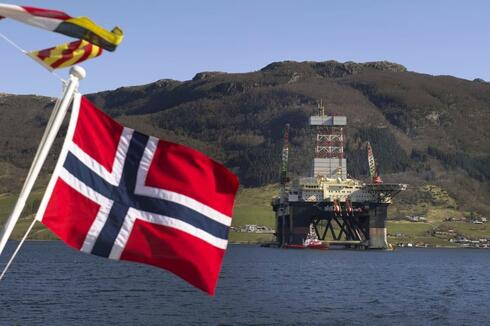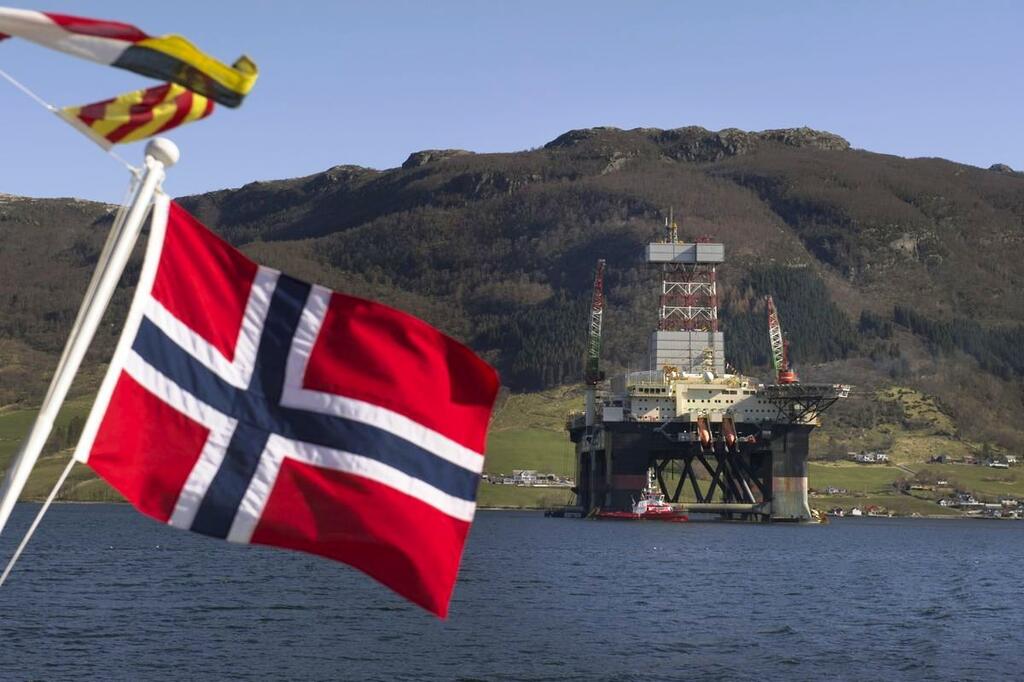
Could Norwegian wealth fund dropping Israeli banks start a global trend?
The sovereign wealth fund is considering stopping its investments in local banks that provide services to companies operating in the settlements. The fund recently announced it was selling its holdings in Israel-founded cybersecurity company Cognyte
The Norwegian sovereign wealth fund, which manages assets worth $1.3 trillion in 70 countries and about 9,400 companies worldwide, may stop its investments in banks in Israel. Recently, the fund approached local banks with the aim of examining if and how they grant credit and loans to companies operating beyond the Green Line, based on a list compiled by the UN Human Rights Council about two years ago. This news comes after the fund announced earlier this month that it will stop investing in two Thai companies and an Israeli company, Cognyte, due to an "unacceptable risk” of human rights violations.
The Thai energy companies PTT and PTTOR are being dropped from the portfolio due to partnerships with government and military-owned companies in Myanmar, providing the armed forces "with substantial revenue streams that can finance military operations and abuses," and contributing “to serious violations of individuals' rights in situations of war or conflict.” They were also joined by the Israeli cybersecurity company Cognyte, whose surveillance products and services are linked to human rights violations, according to the foundation's ethics council.
Around 0.1% of the investments of the Norwegian wealth fund, which was established with the aim of investing the capital accumulated in Norway's coffers from the discovery of its oil and gas reserves, have been made in Israel. There are 77 local companies benefiting from the fund's money in varied fields. Among others, the fund invests in Delek Drilling, Bezeq International, Danel, Teva, Cellcom, Partner, Banks Leumi, Hapoalim, Discount, International and Mizrahi, Enlight Energy, ICL, Taboola, Zim, Matrix, Gazit Globe and the Azrieli Group.
At this stage, it is not known how the fund will operate in the future, and whether it will indeed choose to withdraw its investments from banks in Israel and how this will affect other companies operating in the settlements. According to estimates in Israel, at the beginning of the year the fund will make a decision on the matter. The Ministry of Foreign Affairs said in response: "This serious issue is known and being dealt with."
The main concern is that a decision to withdraw investments from Israel in protest of the settlements will create a domino effect among other companies and investment bodies in the world. The Ministry of Foreign Affairs is handling the crisis, which has been kept under the radar for the past few months and was reported last Thursday on Israel’s Channel 12 News. The banks are avoiding commenting on the issue at this stage.
This would not be the first time that the Norwegian wealth fund would be making decisions based on Israel's policy in the settlements. In 2021, the fund sold its holdings in two Israeli real estate and construction companies - Shafir Engineering ($1.1 million) and Mivne Real Estate ($11.9 million), due to their activities beyond the Green Line, and announced that it would not invest in them again. The decision was based on the recommendation of the foundation's ethics council, which stated that the Israeli settlements in the West Bank are being built in violation of international law, and that their continued expansion is causing significant damage and deprivation to the Palestinian population.
Due to its holdings in companies around the world, the fund aims to encourage the companies in its investment portfolio to operate under the rules of ESG investments (environment, society and corporate governance), and steers investments in accordance with the recommendation of its ethics council. Last September, the fund stopped investing in the most significant oil and gas producer in India (ONGC.NS), due to concerns about the company's activities in South Sudan. The fund even stopped investing in the Israeli companies Elco, Electra and Ashstrom due to the construction of roads and industrial areas in the West Bank.
The Norwegian wealth fund is the single largest owner of traded companies in the world and owns approximately 1.5% of all traded shares in the world. Along with investing in shares, it owns hundreds of properties in major cities around the world.
The fund was established following the discovery of one of the largest offshore oil fields in the world off the coast of Norway, in 1969. The country's economy grew dramatically due to the sale of oil to world markets, and in 1990 it was decided that it was necessary to use the revenues from the oil and gas sector "carefully" in order to avoid an imbalance in the economy. It was also decided that the funds that began accumulating in the fund in 1996 should be used as a financial reserve and as a long-term savings plan for the citizens.
The wealth fund invests according to a strict mandate from the Norwegian Ministry of Finance and is managed independently by only one owner, unlike the other major asset management entities in the world. The Norwegian government can only use a small part of the fund to ensure it remains sustainable for future generations, but the fund accounts for 20% of the annual government budget.
First published: 12:48, 25.12.22














